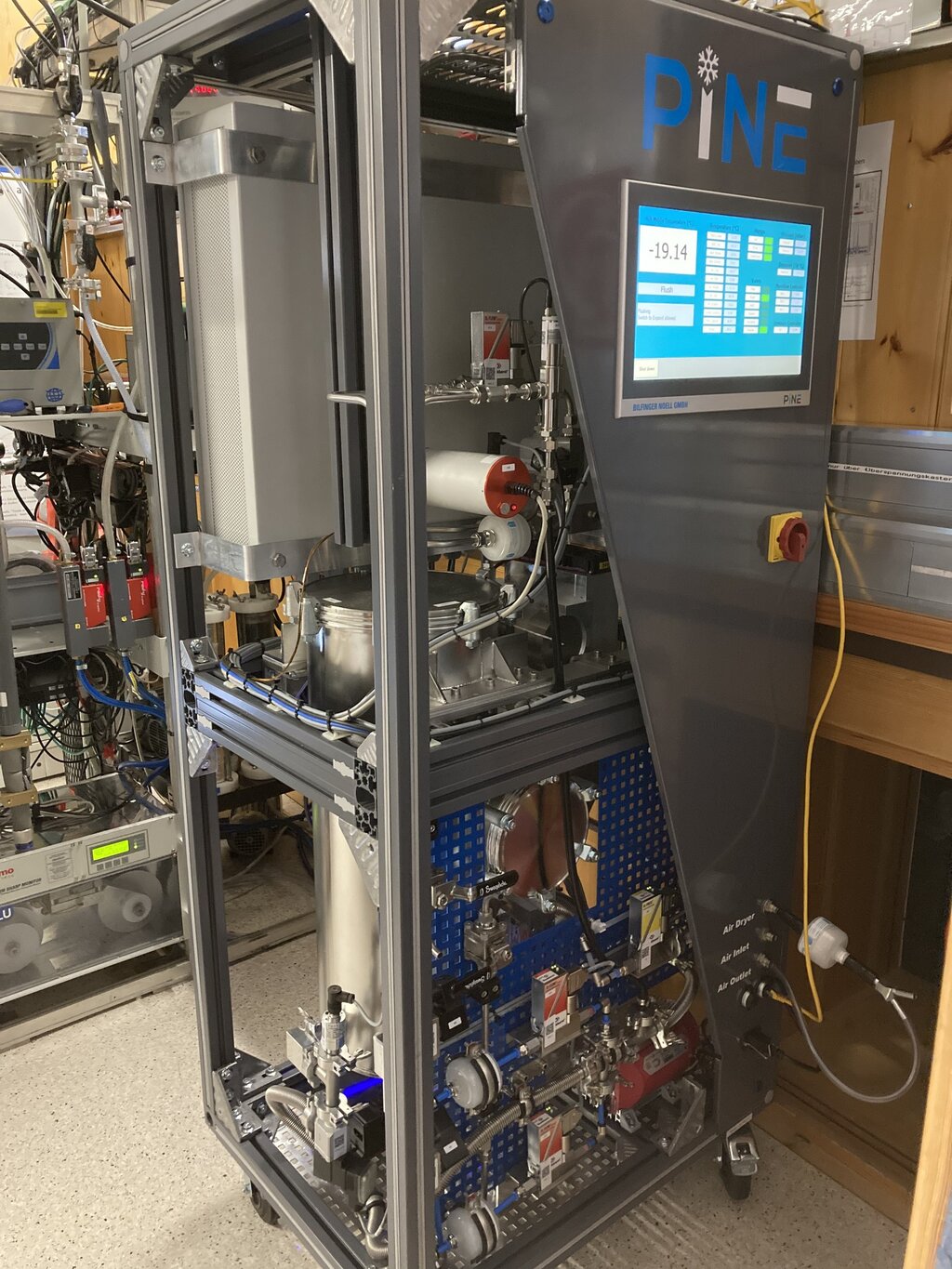Measurement Campaign at SBO: KIT - Karlsruhe Institute of Technology Measures INPs with the PINE
The Sonnblick Observatory (SBO) is active in EU projects that support access to our research station for scientists, so-called TNA programs (Trans National Access Program). Through these TNA programs, more measurement campaigns are now taking place at the SBO.
Due to strict COVID requirements, the Karlsruhe Institute of Technology (KIT) was able to use the Sonnblick Observatory (SBO) for a new measurement campaign in the period from June 26 to August 6, 2021.
The KIT measurement campaign is part of the ACTRIS-IMP project (https://www.actris.eu/), which is supported by the European Commission under the Horizon 2020 - Research and Innovation Framework Programme, H2020-INFRADEV-2019-2, Grant Agreement Number: 871115.
The TNA project runs under the title "Cloud in situ measurements of atmospheric ice nucleating particles (INPs) at SBO".
The goal is to investigate the influence of INPs on cloud formation and the Earth's radiation budget. Especially dissolved in mixed cloud phases, the particles can promote precipitation. As part of the campaign, a new instrument was installed at the Sonnblick Observatory, the "PINE - Portable Ice Nucleation Experiment". The PINE was connected to the aerosol inlet and is capable of cooling the inlet air down to -60°C. This method allows a high temporal resolution analysis of INP concentrations. In addition, INPs were collected on filters, which will be analyzed later in the laboratory at KIT. The location of the Sonnblick Observatory offers excellent conditions for such investigations - emission-free, at the alpine ridge, in the free troposphere, under constant observation.
Even if the KIT team left today, 06.08.2021, after almost two weeks, the PINE will remain at the Sonnblick Observatory for a few more months to continue the measurements.

